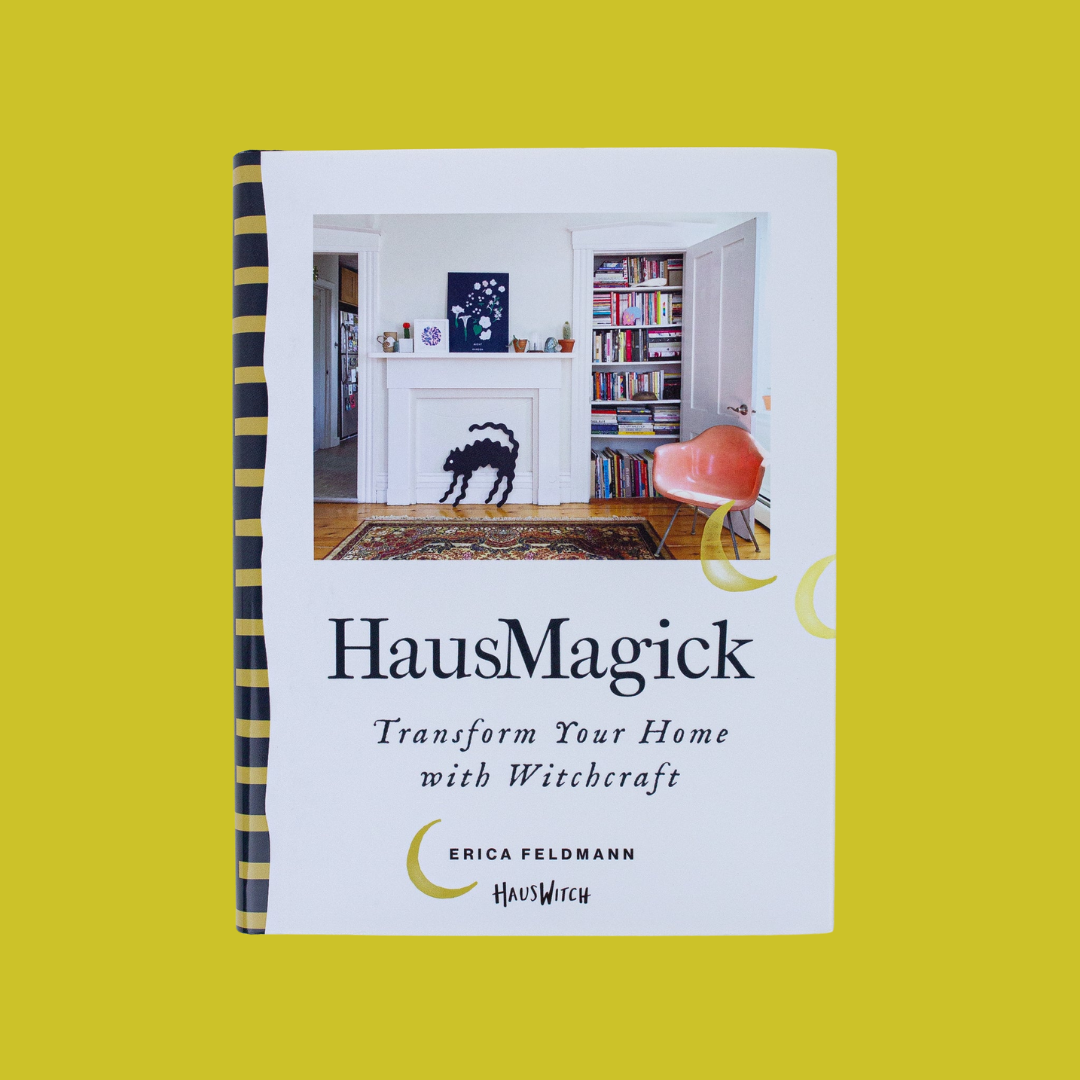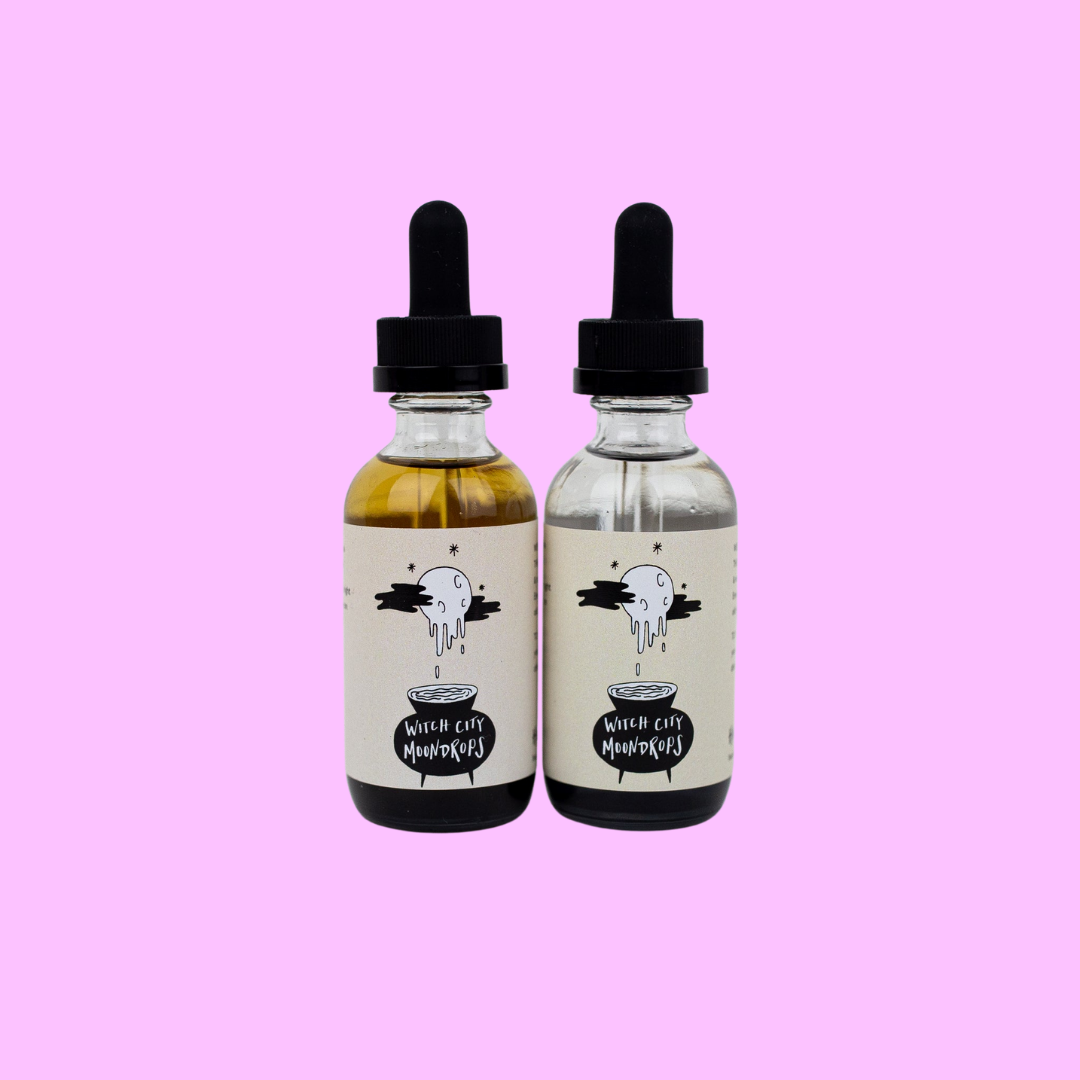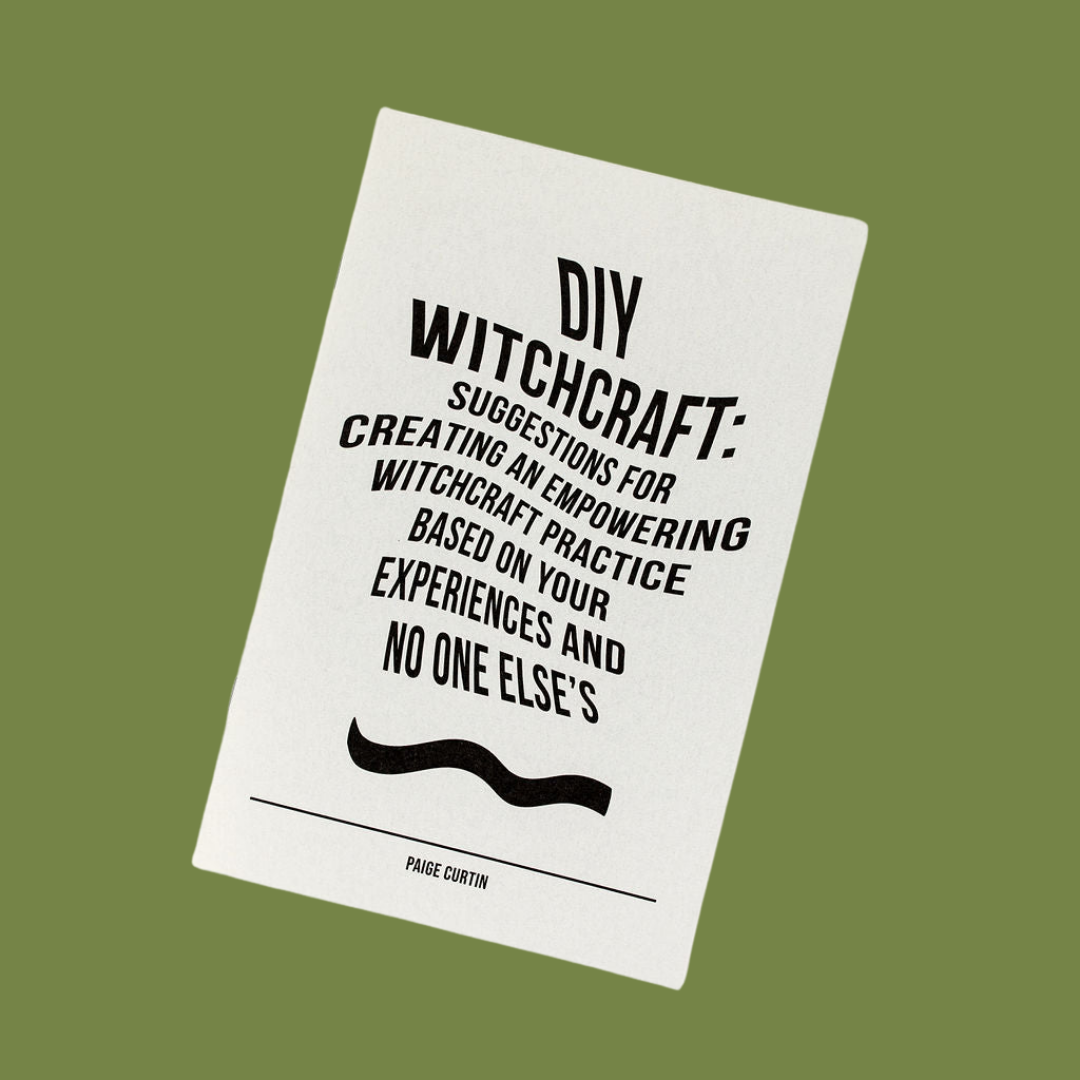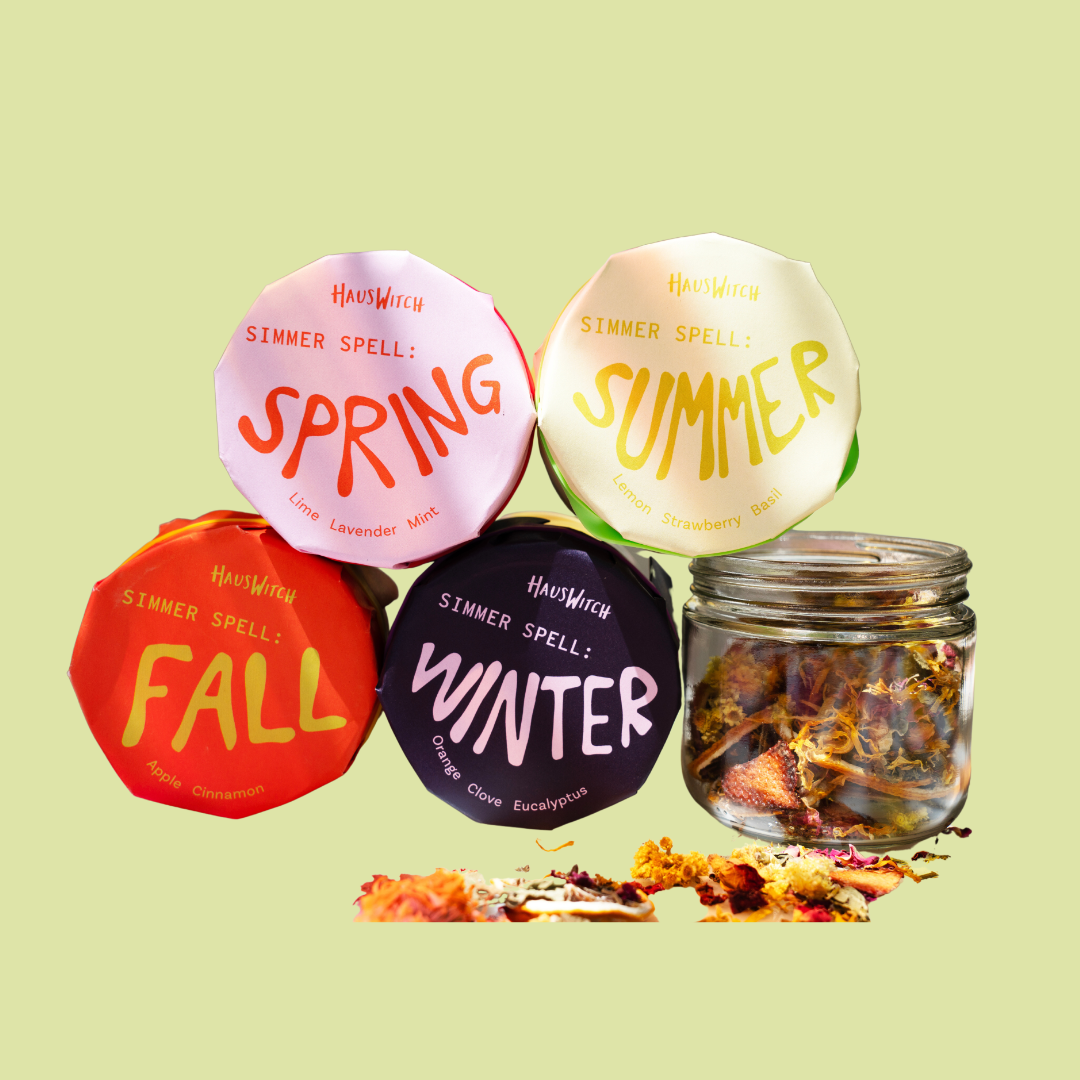
Liz Migliorelli, aka Sister Spinster, gave us a little insight into how her magical essence blends came to be and how she built her career around her herbal faves. Be sure to check out her essences in the shop!
How did you end up Sister Spinster, maker of things magical and herbal?
I feel like with most people who are herbalists or who do plant work, they often have their own weird healing crisis. For me, I was really sick for most of my childhood. I had terrible eczema all over my body and I had a lot of digestive issues, so I was low energy for a lot of my life. When I was in college I realized that the symptomatic treatment wasn’t working and I had to get to the root of what was going on, but that took a lot of time to figure out. I grew up in a super western medicine family and had grandparents who worked in a hospital, so that was what I knew.
Growing on the East Coast it’s a lot harder to have access to alternative medicine and that information or community, so it’s not OUT as much in the world. I grew up in New York.
East Coast! I just imagine you consistently in the flowery fields of California, tbh.
No, but I spent a lot of time in the woods growing up. I spent my summers in Maine. Being in nature was always important to me, but I also didn’t understand that healing could come from that place. I mean I knew it, in a certain sense of, like, spiritual healing. It was a really important place for my soul, but in terms of using plantain or something like that, I didn’t know anything about that as a kid, or have people in my life who knew about that.
So, I was living with a single mom in Olympia, WA when I was in college and she was the daughter of a midwife. She grew up in an island commune in Alaska. It was very much about plants, not a lot of resources besides the natural world—which has plenty. And so she knew a lot about plants and told me that I should start working with nettles to figure out what was going on for me. That kind of became my saving grace. I was in bed and really depressed, and didn’t have enough energy to get up and then through slowly drinking nettle tea and having that clear my skin in a deeper way and not just treat it symptomatically…that was it for me.
The nettles just spun me off into the world of plant work. I started apprenticing with different herbalists and studied herbalism in college at Evergreen. It just totally became my life and I was obsessed with it, so I decided to go to herb school and got a clinical training program under my belt. I worked in a clinic for about 5 years in the Bay Area.
You mentioned nettle, are there other herbs you would call your ‘plant baes?’
I have a few—I’m non-monogamous with plants. Nettle, for sure, and that’s actually where the name Sister Spinster came from. Well, there are two reasons. One was that I was a DJ in college and Sister Spinster was a name that came to me for a show that I did called The Garden of Fatal Flowers. But then, totally separately, I was reading a book: Healing Lives, by Susan Weed. It was the first herb book I ever read. She called nettles sister spinster and I was like, ‘Oh my god, this is amazing.’ When I had to choose a name for my business it just seemed natural to go with that.
Nettles are definitely an everyday plant for me, usually in the form of tea. That’s definitely one of my top five friends.
Do you have others that would be in your Herbal Top 8 on Myspace?
Yeah! Yarrow, for sure. My students always call me out because whenever I talk about a new plant I’m always like, ‘This one’s my favorite!’ and then they’re all, ‘You say that about every single one.’ But I really like Hawthorn a lot, Violet is one of my favorite plants, but it’s not quite out yet, here. Tulsi, or holy basil.
Nettle and rosemary are really my two go-tos, though. Rosemary is a great circulatory stimulant, so it’ll warm you up. I make infused oil for a muscle rub for sore muscles. It’s mentally stimulating, too, so I drink rosemary tea in the morning as a way to wake up. They say, ‘rosemary for remembrance,’ since it’s connected with mental function. If you’re studying you can have rosemary next to you while you’re reading and then bring the sprig to your test, and you’re more likely to remember what you were reading.
Besides herbs, you mentioned having an obsession with water during your workshop and have a full-on collection. When was the first time you were like, ‘I’m going to take this water home with me?’
When I lived in Olympia, there was a lot of fucking water there, all the time. The first year that I was there it rained one hundred days straight. The town slogan of Olympia is, ‘It’s the water.’ There’s a public well in town, and you’re welcome to just go and fill up your water from this well. It’s like a big community resource and gathering place, so I think that was very influential for me. Just being in this place where water was very, very sacred within the community and honoring that.
Then, I just started doing research about water. I’m obsessed with going to hot springs, healing water, and herbal bathing, and researching bathhouses. I went to Budapest specifically to go to the bathhouses and bathe in the jasmine water. So, it became this weird fixation, and then I realized that in folklore and history a lot of the healing sacred spaces are connected to water so it just seemed natural to start collecting sacred waters.
This is totally not a segue, but something else that I noticed (and loved) is your openness about your politics. Are there any particular causes that you’re rallying behind right now?
I guess it’s kind of a reflection every month for me, in terms of what’s up, you know? And what’s happening in my community. But that’s a really big part of my business and something that I feel really lucky to be able to do. I don’t make a ton of money, but I make a point of contributing back. I do a lot of fundraisers by donating a percentage of my sales to different things, like Planned Parenthood, but for the most I’ve been donating more money towards local indigenous movements in Northern California, decolonization movements, and water or land protection.
Those feel really important and aligned with my work. Specifically, last month I donated half of all orders to the National Immigration Law Center, which helps low income immigrants with legal services. It changes every month, but it’s important for me.
I am trying to integrate this work in a more sustainable way in terms of politics and what that looks like. I teach free classes to homeless youth in a nearby town where there’s a lot of gang violence. Working with herbs in that way is very important. I organize free clinics with other herbalists where I live. We host clinics for people who don’t normally have access to alternative medicine because it’s not covered by insurance, or they don’t have insurance.
We do a homeless care day, where we go out into the streets, do herbal footbaths, and bring fire cider. So there’s a lot that I do, but there’s not a lot that’s regular. I feel like it’s always just a reflection of what’s most urgent. It’s acute harm prevention, but I’m interested in figuring out how I actually integrate this within my business model.
It’s amazing that you’re that involved and manage to keep track of enough things to do something different all the time. I think that’s a success in and of itself.
You’ve used the term ‘Folk Magician’ to describe yourself, and I would bet that everything from your activism to your herbalism is affected by your magic somehow. What drew you to that term and how is it different from the term ‘witch?’
I feel like it’s a terminology that identify with more than ‘witch.’ I feel like to call yourself a witch is still kind dangerous, even though it’s super trendy. Where I live, it’s really rural and while there’s a lot of radical hippies from the 60s, it’s also very conservative. I don’t always feel super safe using that word. Also, I feel like ‘witch’ tends to make people think of Wicca, which isn’t something I am either.
I teach this class called the Folk Medicine and Magic of Old Europe. It’s really just about connecting people to land and having a relationship with the land, and that’s where folk magic comes from. It’s just about being in a relationship with land and the interaction and the experience that comes from being in relationship with the land around you. And to me, that’s what a folk magician is, and that’s what I do.
Like, I’ll go out to my well outside my house and bless it, or be in a relationship with it in that way. Or I live next to the ocean, so I go and interact with the ocean in these different ways, and get medicine from it or whatever it is that I’m doing. It’s more about a way of being in the world. And yes, I do identify as a kind of ‘witch’ as well, but I’m also careful. I guess I’m careful about in terms of who I’m in communication with in my direct community. But I would guess a lot of the older conservative people in Mendicino, where I live, aren’t reading the HausWitch blog.
Dammit! They should be. They’ll learn a lot!
We’ll get them here! I’m really interested in bringing more conservative people into my classes and I’m pretty radical in terms of politics and identity politics. The thing is, I very much want to have people who maybe don’t perceive the world as a magical place in my classes.
You have to ease them into it.
Right! I can’t come out and say ‘Come to witch school!’ that would be a little overwhelming and these particular people wouldn’t come. So, I had to learn a way of navigating the world, which is another reason why I went to herb school. I wanted that clinical aspect—because that’s just a different way of telling the story of magic.
Jonesing for more Liz in your life? Follow her on Instagram and check out her website for her classes. Fingers crossed we'll have her back on the East Coast soon!





